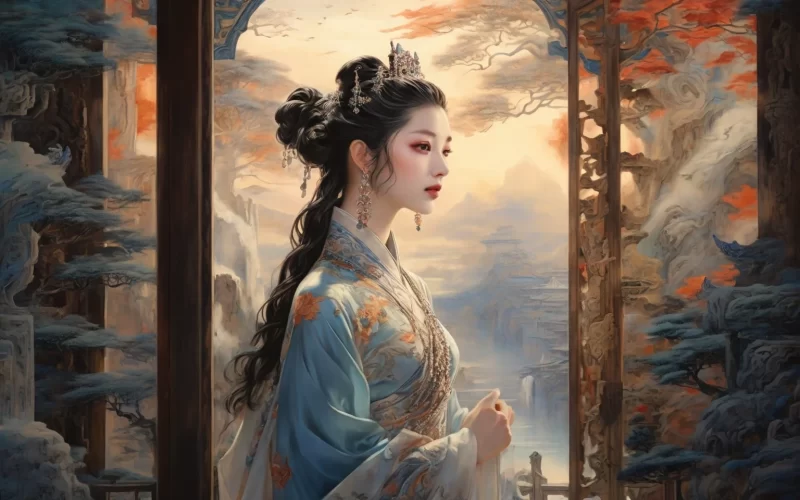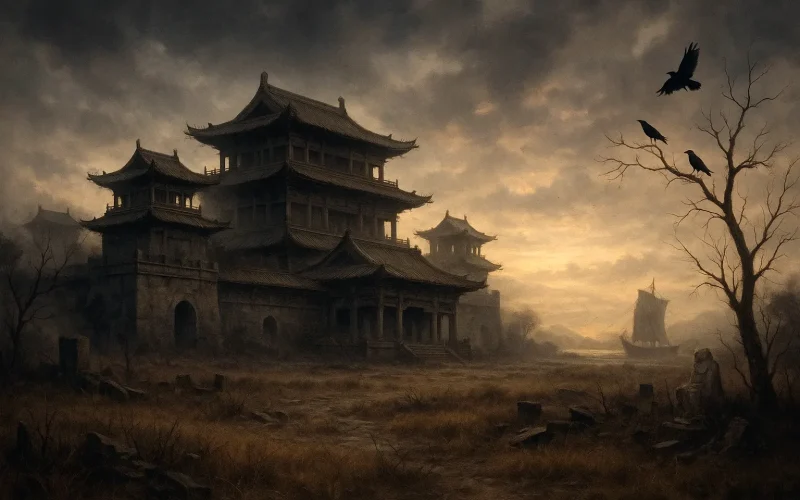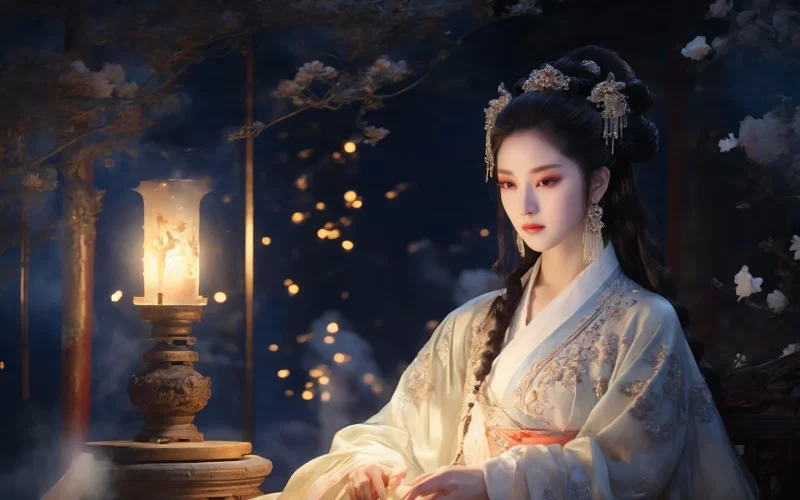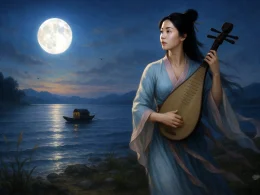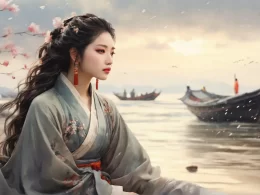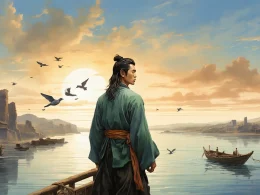The Mother of Heaven, in her window b y the Jade Pool,
Hears The Yellow Bamboo Song shaking the whole earth
Where is Emperor Mu, with his eight horses running
Ten thousand miles a day ? Why has he never come back?
Original Poem
「瑶池」
李商隐
瑶池阿母绮窗开,黄竹歌声动地哀。
八骏日行三万里,穆王何事不重来?
Interpretation
This lyrical masterpiece by Li Shangyin reimagines the mythological encounter between King Mu of Zhou and the Queen Mother of the West (Xi Wangmu), transforming an ancient legend into a profound meditation on broken promises and temporal disillusionment. Composed during the late Tang Dynasty's spiritual crisis, when emperors obsessively pursued immortality, the poem's surface narrative of divine longing conceals sharp political allegory. Through Xi Wangmu's eternal wait, the poet constructs a multi-layered discourse on the futility of earthly power against time's inexorable flow.
First Couplet: "瑶池阿母绮窗开,黄竹歌声动地哀。"
Yáo chí ā mǔ qǐ chuāng kāi, huáng zhú gē shēng dòng dì āi.
Mother of Jasper Pool opens her carved window / While "Yellow Bamboo" dirges shake the earth below
The couplet establishes a cosmic dissonance: Xi Wangmu's elegant preparation (symbolized by the "carved window" of celestial abode) contrasts violently with the human world's suffering echoed in King Mu's own "Yellow Bamboo" ballad - originally composed to lament starving commoners. This ironic juxtaposition reveals the poem's central tension: divine eternity versus mortal impermanence, with the goddess herself becoming a victim of temporal betrayal.
Second Couplet: "八骏日行三万里,穆王何事不重来?"
Bā jùn rì xíng sān wàn lǐ, mù wáng hé shì bù chóng lái?
Eight steeds could race thirty thousand li per sun / Why does the king not return though time has run?
The legendary horses' supernatural speed (emphasizing how easily the promise could be kept) makes the king's absence more devastating. The rhetorical question transcends mythological context to become: 1) A critique of Tang rulers abandoning governance for Daoist pursuits 2) A metaphysical inquiry into mortality 3) An existential lament about love's fragility against time. The deceptively simple query distills the poem's essence into one piercing line.
Holistic Appreciation
Li Shangyin masterfully subverts the Xi Wangmu myth - traditionally symbolizing imperial legitimacy through divine endorsement - into a tragicomic spectacle of celestial abandonment. The waiting goddess, stripped of her omnipotence, becomes an archetype of all jilted lovers and failed ideals. The poem's genius lies in its recursive irony: the very ballad proving King Mu's earthly compassion ("Yellow Bamboo") now testifies to his broken celestial vow, while the eight stallions meant to showcase Zhou's glory instead underscore its ephemerality. This multidimensional disillusionment reflects late Tang intellectuals' crisis as dynastic collapse loomed.
Artistic Merits
- Mythological Transmutation: The poet hijacks state-sanctioned mythology to undermine imperial authority, using Xi Wangmu's diminished stature to mirror Tang rulers' spiritual bankruptcy.
- Temporal Collage: Simultaneous presentation of past (ballad composition), present (goddess waiting), and eternal absence creates a haunting chronotope.
- Sonic Symbolism: The "earth-shaking" lament (动地哀) operates on three levels: literal sound, emotional intensity, and historical tremor foreshadowing dynastic fall.
Insights
This poem, through Xi Wangmu's eternal vigil, captures the universal human experience of broken promises—the chasm between expectation and reality. While rooted in mythological pathos, its implications extend to all realms where vows are made and forgotten. For late Tang society, the rulers' obsession with immortality elixirs becomes a cautionary tale about evading temporal responsibilities, their inevitable failure echoing through these lines. Simultaneously, the work transcends its era to voice a timeless truth about human relationships: the ache of unmet longing resonates across centuries, reminding us how profoundly expectations bind—and betray—hearts through the ages.
Poem translator
Kiang Kanghu
About the poet
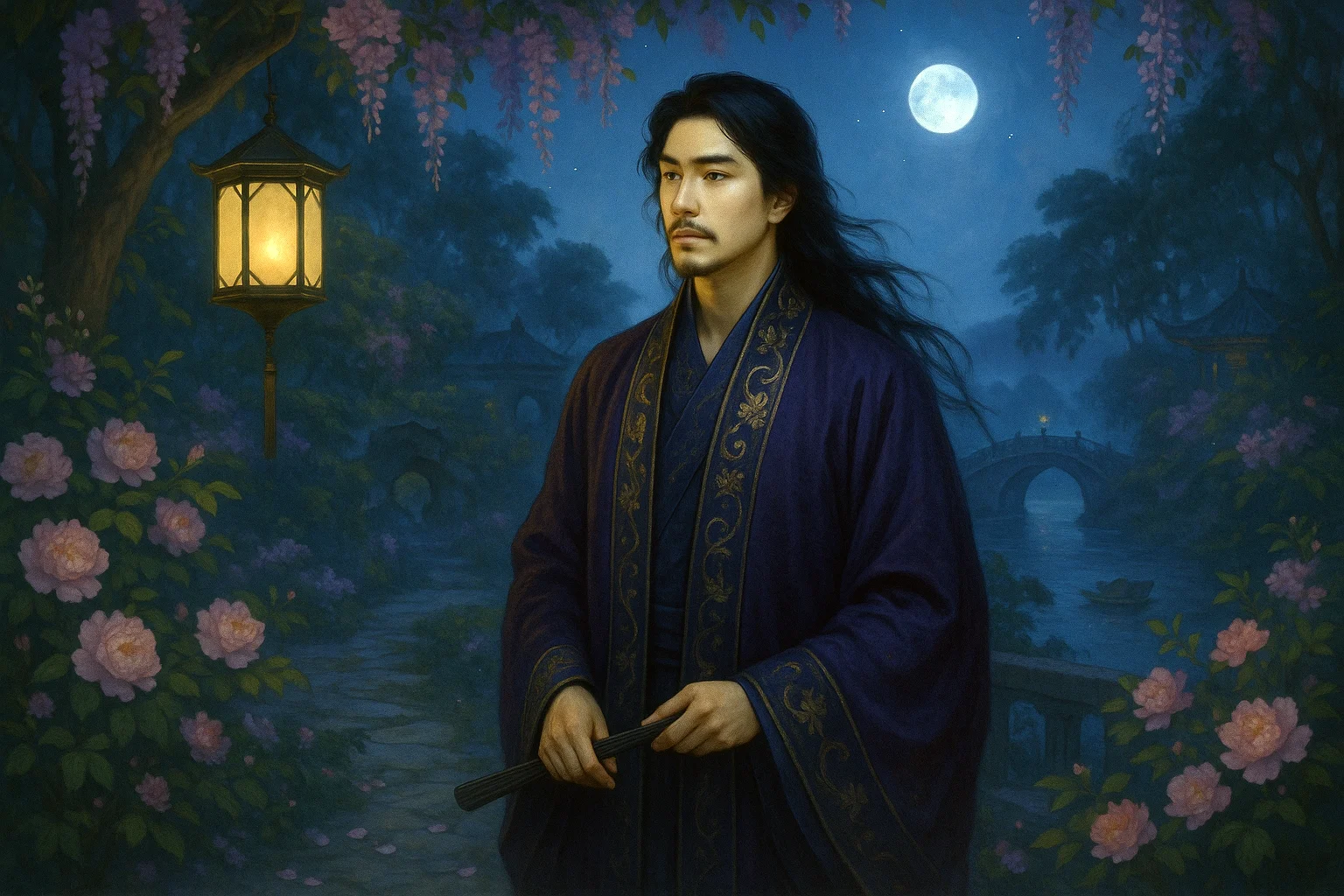
Li Shangyin (李商隐), 813 - 858 AD, was a great poet of the late Tang Dynasty. His poems were on a par with those of Du Mu, and he was known as "Little Li Du". Li Shangyin was a native of Qinyang, Jiaozuo City, Henan Province. When he was a teenager, he lost his father at the age of nine, and was called "Zheshui East and West, half a century of wandering".






